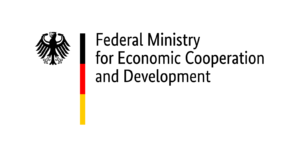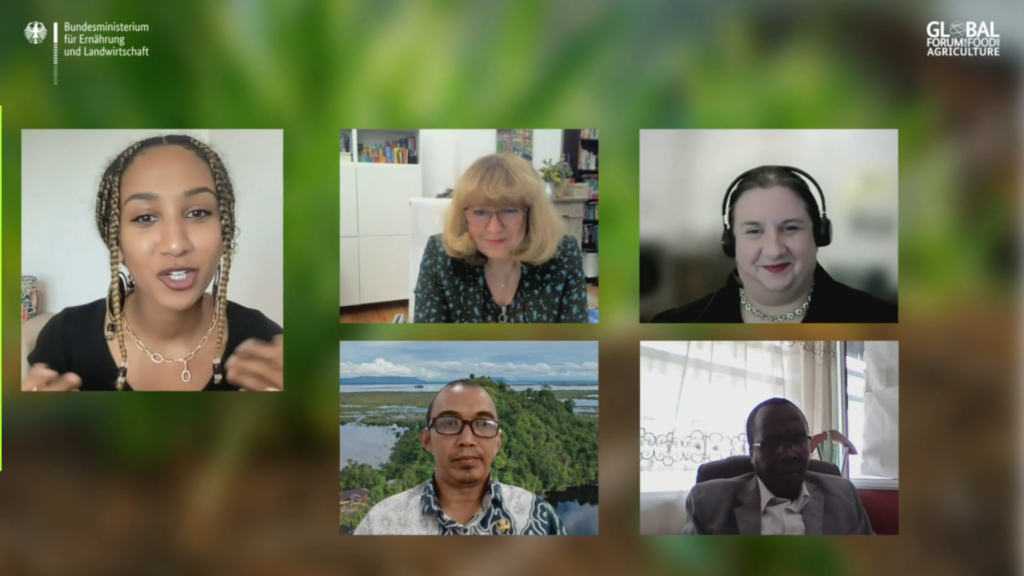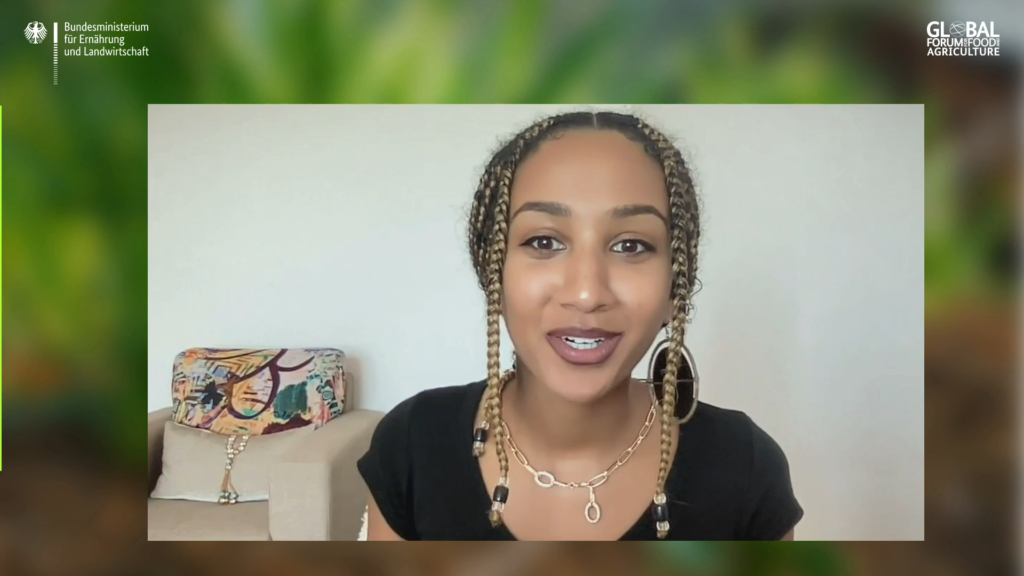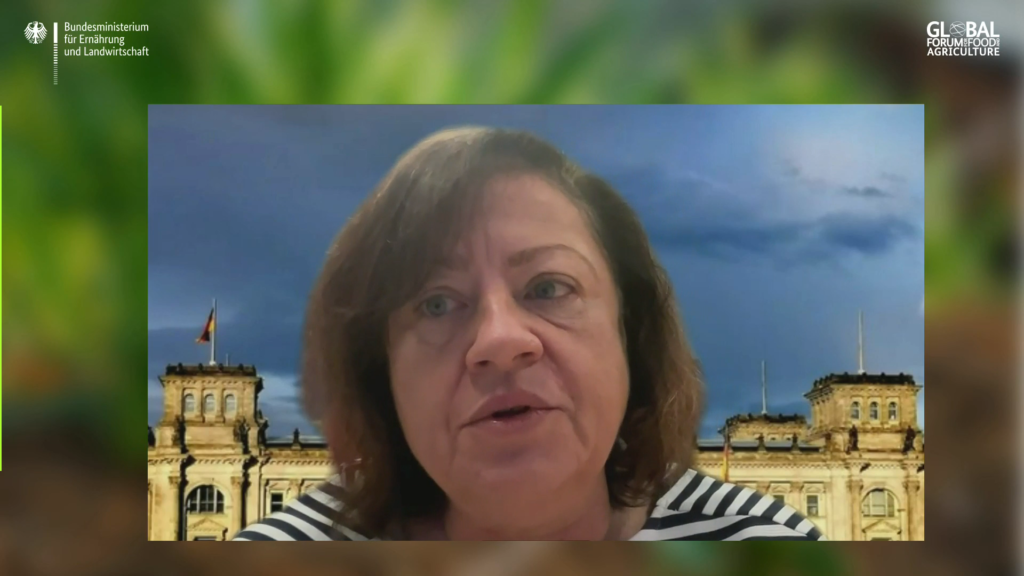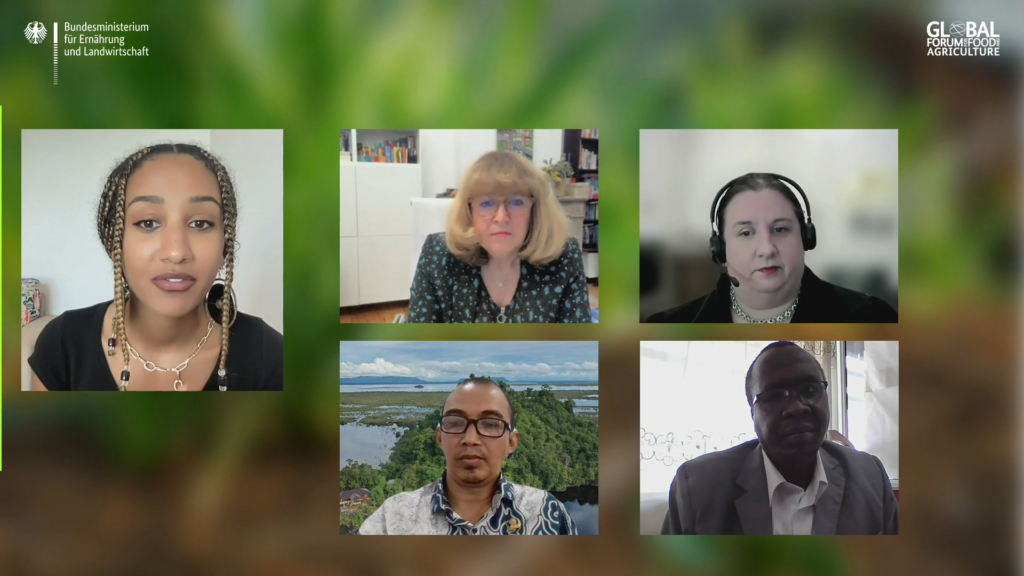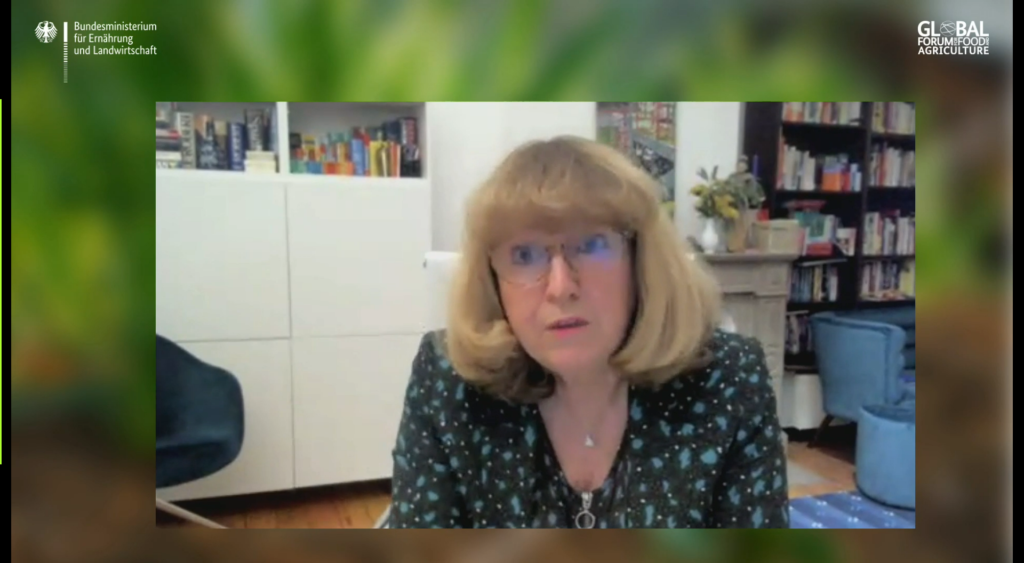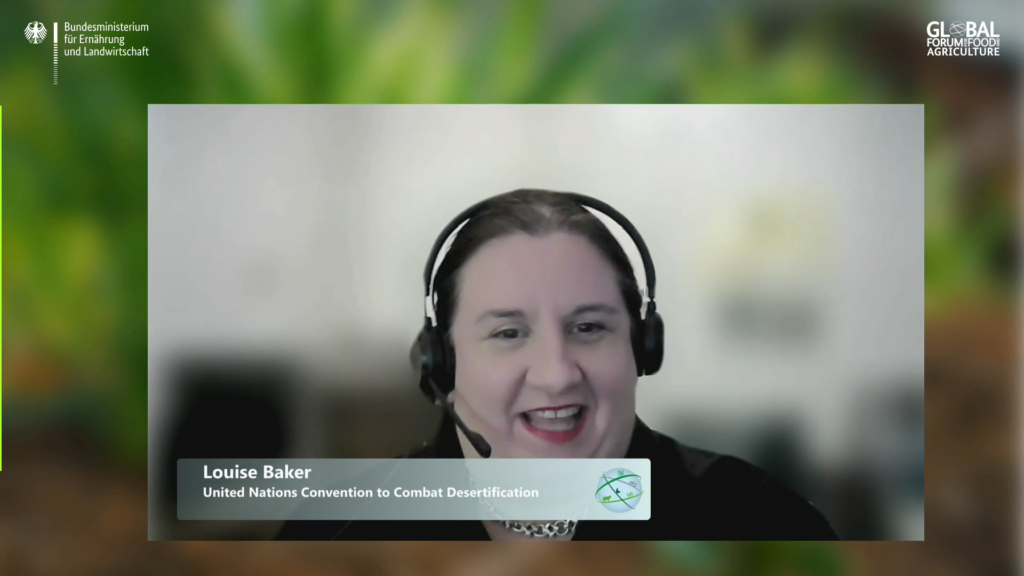Land transformation: From competition for land use to integrative use
Federal Ministry for Economic Cooperation and Development (BMZ)
Time: Tuesday, 25. January 2022, 8:00 a.m. – 9:00 a.m. (CET), subsequent deep dive 9:00 a.m. – 9:30 a.m.
Languages: English, German, French
Summary:
Hosted by the German Federal Ministry for Economic Cooperation
and Development (BMZ), this expert panel highlighted the
governance action needed to reverse global trends of land
degradation. The recommendations of the flagship report
“Rethinking land” by the German Advisory Council on Global
Change served as starting point for the discussion. “The
international framework is better than it has ever been”,
Louise Baker (UNCCD) stated, adding that healthy land is finally
acknowledged as the baseline of achieving international
environmental objectives. However, the translation of
Sustainable Land Management (SLM) into policies offering
effective incentives that reach small scale landowners are still
missing. Astrid Schomaker (European Commission) underlined the
new demand-side driven approach of the EU legislative proposal
on deforestation-free supply chains, while indicating the need
to work with the partner countries to strengthen sustainability
in supply chains, improve forest management, support smallholder
farmers and civil society. Indra Kumara (Environment District
Agency, Kapuas Hulu, IDN) and Laban Kiplagat (Ministry of
Agriculture, KEN) came to similar conclusions, emphasizing that
policy cooperation across sectors and strong institutions which
address the interests of local stakeholders are the drivers of
success for SLM.
In the end, the message was clear: A global transformation to
sustainable land use can only be successful if it builds on
strong institutional cooperation addressing the land users of
today and tomorrow.
Video
Recording
Moderator
Introductory Satement
Bärbel Kofler is a member of the following trade unions: IG BCE (Mining, Chemical and Energy Industrial Union, IG Metall, and GEW (Union of Persons Employed in Education and Science).
The Bavarian Member of the German Parliament is a trained bank clerk, studied computer science at Rosenheim University of Applied Sciences and did a doctorate in linguistics at Salzburg University. After completing her PhD, Bärbel Kofler worked as a DAAD lector in Moscow and as a lecturer at a college for those engaging in civilian service.
Keynote Speaker
Panel Guests
Indra Kumara is a forest scientist having held numerous managerial positions in Kapuas Hulu District, West Kalimantan. He was the Head of the Basin and Land Conservation Section, Head of Forest Planning Section, Head of Plantation and Forest Planning Division and Head of Forest Management Division. After two years of coordinating the Sustainable Forest and Biodiversity Management Programme in Borneo, he returned to Kapuas Hulu District, first held a position as Secretary of the Planning Agency and is currently the Secretary of the Environment Agency of Kapuas Hulu district in West Kalimantan. In 2020, he enrolled in the Tropical Biodiversity Conservation Programme of Bogor University as PhD student.


